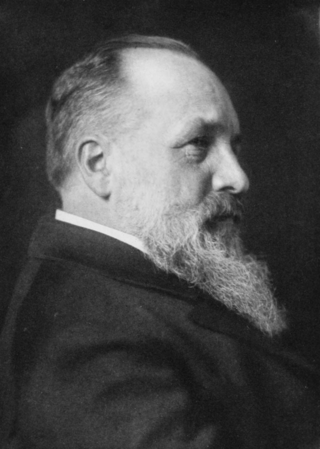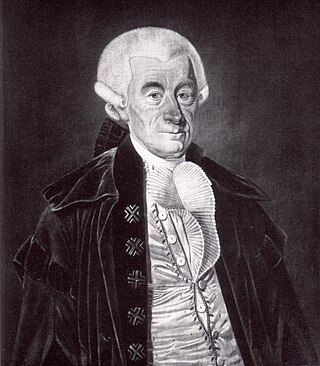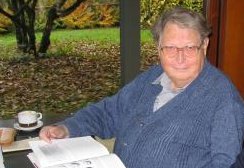Ostwalds Klassiker der exakten Wissenschaften (English: Ostwald's classics of the exact sciences) is a German book series that contains important original works from all areas of natural sciences. It was founded in 1889 by the physical chemist Wilhelm Ostwald and is now published by Europa-Lehrmittel.
The series was first published by Wilhelm Engelmann in Leipzig and then by Akademische Verlagsgesellschaft in Leipzig and more recently in reprints and new editions by Verlag Harri Deutsch in Frankfurt.
Ostwald's aim was to remedy the "Mangel an Kenntnis jener großen Arbeiten, auf welchen das Gebäude der Wissenschaft ruht" (Lack of knowledge of those great works on which the edifice of science rests). The first volume in 1889 was Über die Erhaltung der Kraft (On the conservation of power) (first 1847) by Hermann von Helmholtz. In 1894, the physicist Arthur von Oettingen von Ostwald took over the editing (and remained editor until 1920, when Ostwald's son, Wolfgang Ostwald, took over the task). However, Ostwald initially continued to publish the chemistry volumes until he was replaced by Richard Abegg. 195 volumes were published by 1915; then there was an interruption due to the First World War until 1919. From 1919, they were published by the Akademische Verlagsgesellschaft, which also reprinted older editions. In 1923, the two hundredth volume was published (work by Wilhelm Ostwald on catalysis). From 1938 (volume 244) to 1954 (volume 245) there was a break due to World War II. The series was then continued by the successor to the Akademische Verlagsgesellschaft in the GDR, the Akademische Verlagsgesellschaft Geest & Portig. This was from 1968 with the B. G. Teubner Verlag, who was thus co-editor of the series. The successor to the Akademische Verlagsgesellschaft in der FRG, based in Frankfurt am Main, also published a Neue Folge (new series) from 1965 (the publishing house existed until 1983), of which six titles were published (from Volume 4 in 1968 they were published by Vieweg in Braunschweig). From 1982 there were reprints of the old series before the Second World War, in West Germany by the publishing house Verlag Harri Deutsch in Frankfurt, which specialized in the publication of scientific literature from the GDR in the FRG. A total of 275 volumes were published by 1987.
After World War II [nb 1] published by Akademische Verlagsgesellschaft, Verlag Harri Deutsch and Europa-Lehrmittel (except for reprints and new editions of the old series):
Only six volumes were published by Akademische Verlagsgesellschaft, Frankfurt, which, as a new series, did not follow the old series in terms of numbering:
More volumes were planned (such as François Viète's Einführung in die Algebra (Introduction to Algebra), which was published elsewhere in 1973).

Carl Ritter was a German geographer. Along with Alexander von Humboldt, he is considered one of the founders of modern geography. From 1825 until his death, he occupied the first chair in geography at the University of Berlin.

Josef Breuer was a distinguished physician who made key discoveries in neurophysiology, and whose work in the 1880s with his patient Bertha Pappenheim, known as Anna O., developed the talking cure and laid the foundation to psychoanalysis as developed by his protégé Sigmund Freud.

Carl Eduard Sachau was a German orientalist. He taught Josef Horovitz and Eugen Mittwoch.
Gottfried Boehm is a German art historian and philosopher.

Heinrich Suter was a historian of science specializing in Islamic mathematics and astronomy.
Friedrich Kambartel was a German philosopher.
Friedrich Arnold "Fritz" Bopp was a German theoretical physicist who contributed to nuclear physics and quantum field theory. He worked at the Kaiser-Wilhelm Institut für Physik and with the Uranverein. He was a professor at the Ludwig Maximilian University of Munich and a President of the Deutsche Physikalische Gesellschaft. He signed the Göttingen Manifesto.

Günter de Bruyn was a German author.

Johann Stephan Pütter was a German law lecturer and publicist. He was professor of law at the university of Göttingen from 1746 until his death. He exerted great influence on the law institutions of his time. His principal work is Historische Entwicklung der heutigen Staatsverfassung des Deutschen Reichs.

The Südkurier is a regional daily newspaper in Germany serving the regions northwest of Lake Constance, Hochrhein, and Black Forest with its headquarters Konstanz, Germany. The paper appears with a circulation of around 130,000, six times per week in Berliner format. The predecessor of the Südkurier was the Konstanzer Zeitung.

Hans-Ludwig Wußing was a German historian of mathematics and science.
The Verlag Harri Deutsch with headquarters in Frankfurt am Main, Germany, as well as in Zürich and Thun, Switzerland, was a German publishing house founded in 1961 and closed in 2013.
Klaus Hortschansky was a German musicologist.
Albrecht Riethmüller is a German musicologist.
Wolfgang Cramer was a German philosopher and mathematician.
Johannes Kunisch was a German historian. He held chairs of early modern history at the Goethe University Frankfurt. (1972-1976) and the University of Cologne (1976–2002). Through his publications Kunisch became one of the leading German early modern historians. His biography Frederick the Great, published in 2004 and widely acclaimed, gave lasting impulses to Prussian research.
Annegret Rosenmüller is a German musicologist.
Friedrich Gustav Schilling was a German musicologist, editor and lexicographer.

Jürgen Hamel is a German astronomy historian. His research areas are the history of astronomy in the Middle Ages and the early modern period, the period around 1800, the history of astrophysics, astronomy and cultural history, and the history of astronomical instruments.
The Akademische Verlagsgesellschaft in Leipzig was an important German academic publisher, which was founded in 1906.